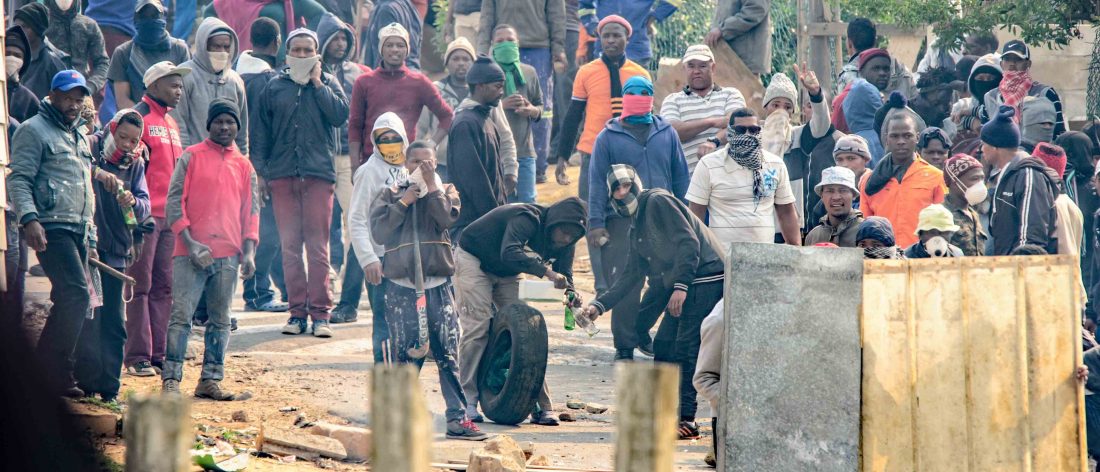Deadly Affairs
Dr.Osumah
Publicly renouncing cult membership doesn’t equate to dissociation from cult activities as the opportunity and risk remain apparent.
Cult and gang violent activities have become ubiquitous in many countries around the world since the mid-21st century. The violent actions have emerged as a significant security threat in Latin American, Caribbean, and African countries, including Nigeria. Previously considered delinquent behaviour, the violent activities have been majorly behind several violent criminal activities such as assassinations, kidnappings, armed robberies, political violence, fraud, prostitution, and rape (Rodgers, 1999, Aghedo and Osumah, 2020). Owing to the dimension cult and gang violence has assumed, it has become a significant security threat. In London, United Kingdom, gang violence has been labelled as the biggest security threat after terrorism (Densley, 2012). In Nigeria, cultism has been profiled as a fast-ticking terrorist time bomb. While the consequences of cult and gang violent activities cannot be quantified in exact terms, the visible manifestations of their immense security threats have attracted grave concerns from critical stakeholders in Nigeria.
To this effect, bold efforts such as legislation, mobilisation of law enforcement agencies for intervention, and calls to renounce cult membership have been made. Despite these efforts, violent cult activities remain unabated. The cult violence and mitigation efforts, coupled with the dynamics that undermine cult renouncement measures, have been subjects of relatively few studies. This edition of Nextier SPD Policy Weekly highlights cult renouncement and dynamic factors that undermine its effectiveness and make recommendations on addressing the limiting factors to the efficacy of cult renouncement.
Cult Renouncement
Recently, many cult members have renounced their membership in various groups across Nigeria. In 2016, at least 222 cultists reportedly publicly renounced cultism in Edo and Delta States; 43 at Ambrose Alli University and 179 in Asaba. On September 18, 2017, about 850 cultists repudiated their cult membership in Akure. Similarly, on November 29, 2017, reportedly 120 youth renounced cult membership and surrendered their weapons in Lagos State. On June 12, 2020, no fewer than 68 cultists of two cult groups renounced their membership and surrendered their arms in the Ogbakiri community in Emohua Local Government Area of Rivers State. The weapons surrendered included AK-47 rifles, pump-action guns, and machetes.
The Caged System of Ex-Cultists
Cult renouncement signals a measure of success in the war against cultism and is worthy of note. However, critical and objective analysis indicates certain significant dynamic elements that dilute the reason to celebrate. This is because many repentant cultists are often killed for renouncing while others are still on the run. Research has also indicated that renounced gangsters or cultists are vulnerable to inter-cult clashes as they are considered collateral damage and often victim of signaling by rival cults.
Besides, the initiation rituals signify an everlasting covenant to pay total allegiance to their cult groups. Some of the repentant cultists claim to have been transformed only to maintain certain destructive habits, characters, and attitudes of callousness, waywardness, drug, addiction, and deadly engagements. This makes renouncing cultism seemingly irreversible, often tricky, and hardly complete, especially with the absence of adequate rehabilitation facilities for those who truly renounced their membership.
Besides, real renouncement has been unattainable because of economic gains, opportunity costs, and interventions from influential persons’ cult patronage. There are anecdotes that unscrupulous politicians create employment opportunities for cultists, favour them with appointments, contract awards, and fabulous financial rewards. This is in exchange for helping them win an election and protecting these politicians from trouble with law enforcement and justice agencies (Aghedo and Osumah, 2020).
Unlocking the Caged System for Ex-Cultists
Following the caged system for the repentant cultists, it is imperative to take the following steps to unlock the cage.
Opportunity-providing programmes: Truly repented cultists should be provided with the opportunity for economic empowerment by governmental authorities at various levels. This should encapsulate providing the renouncing cultists with useful skills and other necessary facilities to resist enticement from the supporters, financiers, and patrons of cult members and their violent activities. This model has been adopted successfully in Nicaragua to reduce youth gang violence (Densley, 2012). Similarly, in the 1960s USA, funds were made available to gangs to enable them to set up and manage businesses of their choices. In the 1960s United States government’s Urban Leadership Training programme was adopted to allow gang leaders to follow study programme design to help them network and integrate into mainstream society (Densley, 2012).
Social Intervention: Government authorities, traditional rulers, non-government organizations, and religious organisations should work in concert or individually to design programmes aimed at reducing cult membership and also to encourage true cult renouncement. The social intervention programme should take the forms of counselling and outreach. The outreach workers should help mediate in the conflict between gangs and provide direct counselling and support services for the repentant cultists’ rehabilitation and reintegration. This should include monitoring and evaluating the repentant cultist’s activities to ensure that they do not return to cultism and properly integrate them into mainstream society. In the USA, there is evidence of the effectiveness of the Delinquency Prevention, Comprehensive Gang Prevention, Intervention and Suppression model in reducing gang-related crime (Howell, 2018)
Adequate Protection for repentant Cultists: Concerned security agencies such as the Police and the Directorate of Security Services should ensure that repentant cultists are adequately protected. In the event of any distress call from the repentant cultists, security agencies should respond promptly. Similarly, the justice agencies should apply extant laws to rein in the financiers, supporters, and patrons of cult members and their violent activities. The security operatives and justice personnel must not patronise or fraternise with any cult group and their violent activities to ensure success. The federal government should also provide security and justice agencies with adequate and functional operational tools to effectively discharge their functions.
Recapitulation
This essay makes apparent how difficult cult renouncement can be in mitigating violent cult activities in Nigeria, where they have emerged as dominant security threats. In particular, it highlights repentant cultists’ dilemma and the need to take further steps beyond renouncement to unlock their caged system. This system includes vulnerability to high-security risks, perceived loss of opportunity for economic gains, high social status, and the struggle with acquired attitudes for callousness. Consistent with these caged keys, solution ingredients such as adequate protection by security agencies, economic empowerment programme, and social interventions in the form of rehabilitation and reintegration programmes are imperative.
Dr.Osumah is a social scientist and a current Senior Lecturer in the department of Public Administration of Ambrose Ali University, Ekpoma Edo State.







